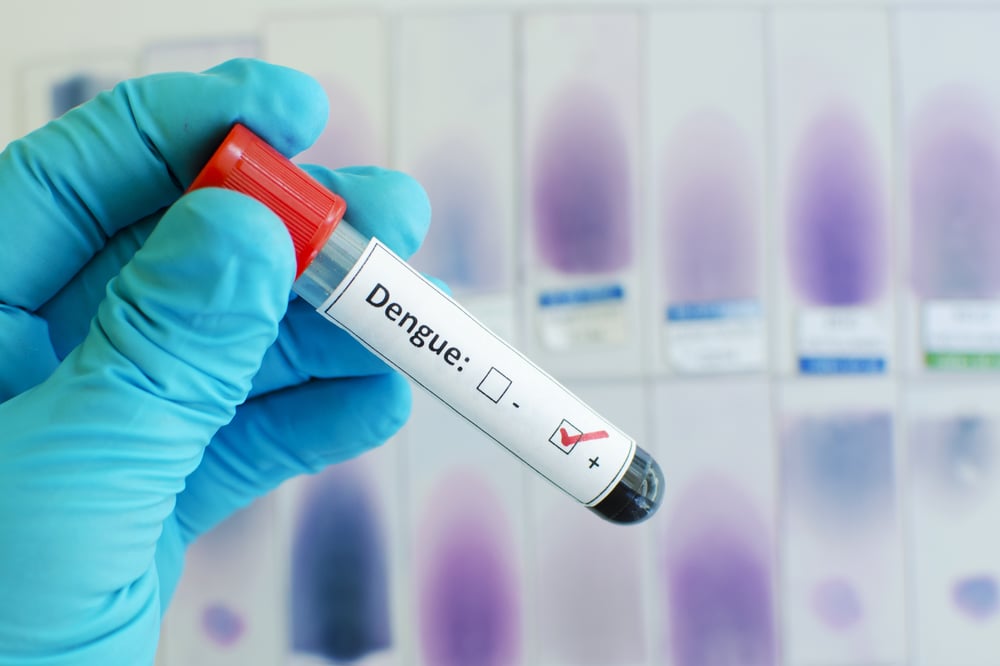Dengue fever is a mosquito-borne disease that occurs in tropical and subtropical areas of the world. Mild dengue fever causes high fever, rash, and muscle and joint pain. A severe form of dengue fever, also called dengue hemorrhagic fever, can cause severe bleeding, a sudden drop in blood pressure (shock) and death. Millions of cases of dengue infection occur worldwide each year. Dengue fever is most common in Southeast Asia and the western Pacific islands, but the disease has been increasing rapidly in Latin America and the Caribbean.
Donor requirements for participation:
- You must be clinically diagnosed by a medical professional. Confirmation of the diagnosis and/or treatment must be verified with your physician.
- Be pre-screened to determine eligibility.
- You’re willing to donate plasma through the apheresis process.
- You must have a photo ID and be able to provide your social security number or proof of citizenship.
- You must be at least 18 years old.
- You must weight at least 110 lbs.
- You must disclose if you have ever been diagnosed with Hepatitis C and/or HIV.
For questions and concerns about requirements or participation, contact us at (833) GO-4-CURE.
Symptoms
Many people, especially children and teens, may experience no signs or symptoms during a mild case of dengue fever. When symptoms do occur, they usually begin four to 10 days after an infected mosquito bites you. Signs and symptoms of dengue fever most commonly include fever as high as 106°F (41°C), headaches, muscle, bone and joint pain, pain behind your eyes, widespread rash, nausea and vomiting and, rarely, minor bleeding from your gums or nose.
In some cases, symptoms worsen and can become life threatening. Blood vessels often become damaged and leaky. And the number of clot forming cells (platelets) in your bloodstream drops. This can cause bleeding from your nose and mouth, severe abdominal pain, persistent vomiting, bleeding under the skin, which might look like bruising and problems with your lungs, liver and heart.
Treatment
No specific treatment for dengue fever exists. Your doctor may recommend that you drink plenty of fluids to avoid dehydration from vomiting and high fever. Acetaminophen (Tylenol, others) can alleviate pain and reduce fever. Avoid pain relievers that can increase bleeding complications — such as aspirin, ibuprofen (Advil, Motrin IB, others) and naproxen sodium (Aleve, others).
If you have severe dengue fever, you may need supportive care in a hospital.
This information is not meant for clinical diagnosis, but as an educational resource derived from Mayo Clinic.
Discovering that you have been infected with a disease can be overwhelming with many unanswered questions and concerns. One that may come to mind is “how can I help someone else that may go the same process and struggles that I have experienced?” You can help by becoming a Specialty Antibody donor!
Participating in research allows scientists and clinicians find new treatments, tests and quicker diagnostic methods to improve patient outcomes and, hopefully, prevent the disease from spreading.


DO NOT SELL OR SHARE MY INFORMATION
M-Th: 7 AM - 3 PM
F: 8:30 AM - 10:30AM
M-F: 7:30 AM - 3:30 PM
Programs:
Bone Marrow, Whole Blood, White Blood Cells
M-F: 6:00 AM - 12:00PM
Programs:
Whole Blood, White Blood Cells
M-Th: 7 AM - 3 PM
F: 7 AM - 12 PM
Programs:
Whole Blood
M-Th: 8:30 AM - 3 PM
F: 8:30 AM - 12 PM
Programs:
Whole Blood, Plasmapheresis
M-Th: 7 AM - 3 PM
F: 8:30 AM - 1:00 PM
Programs:
Whole Blood, Plasmapheresis, White Blood Cells